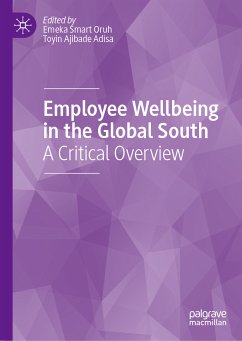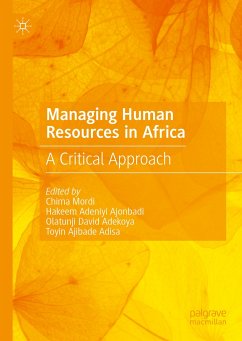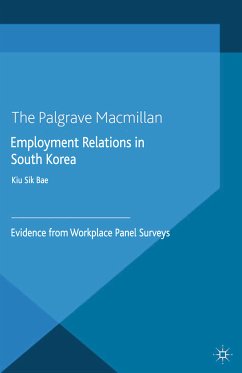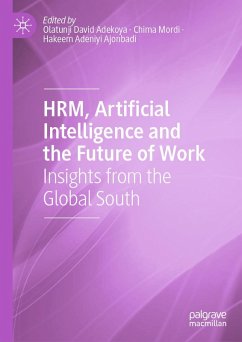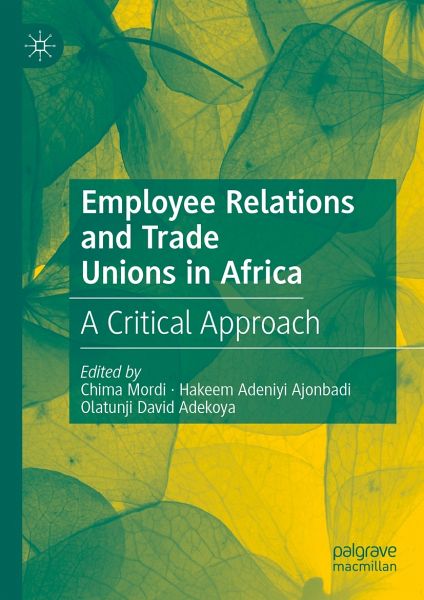
Employee Relations and Trade Unions in Africa (eBook, PDF)
A Critical Approach
Redaktion: Mordi, Chima; Adekoya, Olatunji David; Ajonbadi, Hakeem Adeniyi
Versandkostenfrei!
Sofort per Download lieferbar
128,95 €
inkl. MwSt.
Weitere Ausgaben:

PAYBACK Punkte
64 °P sammeln!
Traditionally, studies of employment relations in Africa have been dominated by the role of trade unions and how they collectively influence relationships within the workplace. A contemporary African outlook into the state of employment relations shows that there has been a shift in the dominance of trade unions. This edited collection considers the role of government actors and workers' experiences in both unionised and non-unionised organisations. It seeks to understand how international and national labour markets, including national and international employment actors and institutions, aff...
Traditionally, studies of employment relations in Africa have been dominated by the role of trade unions and how they collectively influence relationships within the workplace. A contemporary African outlook into the state of employment relations shows that there has been a shift in the dominance of trade unions. This edited collection considers the role of government actors and workers' experiences in both unionised and non-unionised organisations. It seeks to understand how international and national labour markets, including national and international employment actors and institutions, affect employment relations and the ways in which these relationships play out in different national contexts.Researchers, students, policymakers and practitioners working around employment relations in Africa will find this book an essential tool, particularly those with an interest in comparative and international programmes across areas such as employment relations, industrial relations, human resource management, political economy, labour politics, industrial and economic sociology, regulation and social policy.
Dieser Download kann aus rechtlichen Gründen nur mit Rechnungsadresse in A, B, BG, CY, CZ, D, DK, EW, E, FIN, F, GR, HR, H, IRL, I, LT, L, LR, M, NL, PL, P, R, S, SLO, SK ausgeliefert werden.



